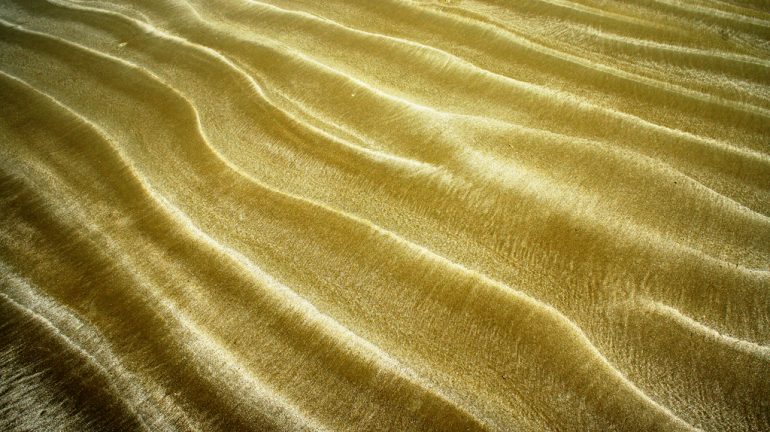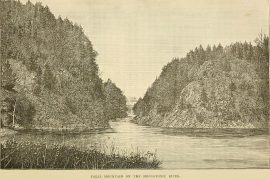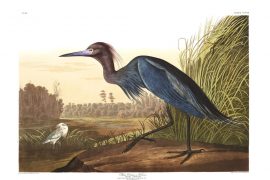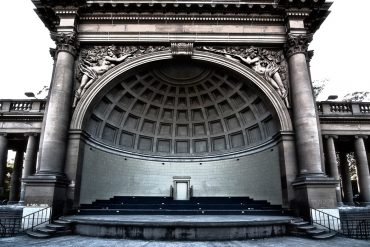The name ‘Au Sable’ means ‘golden sand,’ and of itself connotes little more than a fuzzy French connection. It appears wherever French explorers or missionaries got in on the naming game. There’s an Ausable Chasm and Au Sable Forks in upstate New York, a Lac-aux-Sables in Quebec, and countless hotels and inns around the world projecting earnest French charm.
In the case of the Au Sable Institute of Environmental Studies, it’s a bit of a misnomer. The Michigan city of Au Sable is over 80 miles to the east on the shores of Lake Huron. The Au Sable River has its headwaters not far from the Institute, but the Institute itself lies in the Manistee River watershed. One might expect an environmental institute to respect such geographical niceties.
But these are secondary considerations to the place that has come to be known in Christian environmental circles as simply ‘Au Sable.’ In its 35 years of existence, the Au Sable Institute has earned a well-deserved reputation for an academic program offering college-level environmental courses and nurturing a hand-on Christian environmental stewardship ethic. Spend a summer at Au Sable – well, the faculty, the facilities, and the field setting in a northern Michigan hardwood forest dotted with lakes and cross-cut by rivers will have you smitten with both creation and its Creator.
Some years ago, then-Au Sable director Cal DeWitt made a telling observation. Au Sable did a wonderful job in providing opportunities for college students and faculty. Young people became Au Sable groupies dedicated to linking Christian devotion and care of the creation. The best students became convicted that this was their life’s calling. They applied to graduate school. They were accepted. They disappeared off into the deep, dark holes of the academy. And . . . . And . . . .
Well, it was hard to know. Hard to keep track and hard to stay in touch. So the idea of the Au Sable Graduate Fellows was born — a graduate program that would create fellowships of graduate students at major research universities. The fellowship would continue to nurture a Christian environmental stewardship ethic among graduate students, foster professional connections among Christians just entering the field, and create collegial bonds lasting the decades that comprise a career.
It started slowly. For the first few years in the late 1990’s, the only fellows were a handful at the University of Wisconsin. In the early 2000’s, chapters emerged at Cornell and the University of Michigan. The program grew, faded, almost expired, then grew again. Around 2010, the program began to grow steadily. The Au Sable Graduate Fellows now boast 7 university chapters (Michigan, Michigan State, Wisconsin, Ohio State, Minnesota, Cornell, and Princeton Seminary) and over 35 fellows at eleven different institutions (there are 5 fellows at non-chapter universities – Purdue, Cal-Berkeley, Illinois-Chicago, Maryland, and Maryland-Baltimore County).
The goals are modest. Monthly meetings for discussion and fellowship. A conference each January at the Au Sable Institute site in northern Michigan to which all Fellows are brought at Institute expense. Yearly book stipends so Fellows can develop their own library of resources in Christian environmental stewardship.
The program has been around long enough that the benefits are now tangible. Former Fellows hold teaching positions at state and private colleges. The Fellows routinely receive postings of environmental teaching positions at Christian colleges. Even locally, the chapters become a reference point for environmental wisdom. The Princeton Seminary chapter contributes heavily to this website. This past year, the Au Sable Graduate Fellows chapter at the University of Michigan helped revise a local Montessori school’s curriculum, restore a portion of prairie on school land in the process, and has partnered with a local Presbyterian church intent on celebrating appropriately the installation of 57 solar panels on church property.
A lot of planning and patience has gone into the emergence of the Au Sable Graduate Fellows, and the support of the Au Sable administration has been essential. But there’s always serendipity, or what we in Christian circles refer to as divine providence. Last year’s annual conference, which normally would have been held in northern Michigan, was moved to northern Kentucky on the possibility that the Fellows could meet with Wendell Berry. Wendell came and conversed for two hours on a Saturday morning and then joined the Fellows with the congregation at Port Royal Baptist Church on Sunday noon. It was an amazing weekend, and 80-ish Wendell Berry’s interacting with over 30 young Christian graduate students is a most fitting image for what the Au Sable Graduate Fellows strives to be: a place where the ecological wisdom of the Christian tradition and scriptures becomes the focal point as it is passed from one generation to the next.





